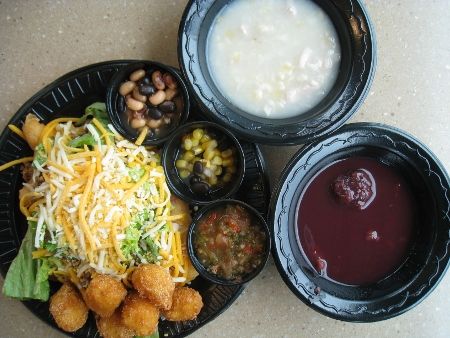Tips For Growing Vegetables In The Garden
 Vegetable gardens are like little havens of tranquil, fruity bastions right outside your home-of course, without the fruit. They allow the owner and caretaker so many wonderful, delicious benefits. Of the perks growing vegetables in a garden offers, being able to eat safe, healthy and organic food definitely rank high.
Vegetable gardens are like little havens of tranquil, fruity bastions right outside your home-of course, without the fruit. They allow the owner and caretaker so many wonderful, delicious benefits. Of the perks growing vegetables in a garden offers, being able to eat safe, healthy and organic food definitely rank high.
• Total freedom from supermarket veggies-which may or may not be safe to eat with all the pesticides used
• Potentially huge savings over the long-haul over grocery store prices
• Fresh, crisp, delicious vegetables like leafy greens or vine-ripened cherry tomatoes
• Vegetable gardening also makes a simply delightful hobby
Another benefit, which kind of makes all of the previous ones possible, are the generally easy planning, executing, and sustaining requirements of: sun, fertilizing, watering, and harvesting. Another easy-to-do take is aerating the soil before you plant the crop seeds, as well as tilling it once every 4 or 5 months. Depending on your lawn, some weeding could be required-as excessive weeds will rob your vegetable garden blind of nutrients. When you’re growing vegetables in the garden, ensure that your garden is located in an area that receives the morning’s sun’s most energized rays. 5 to 6 hours of rays a day will be the most beneficial.
Make certain the depth of your soil is between one and two feet. This is because many-if not most-crops’ roots go down to around two feet. It’s usually practical to use a roto-tiller to accomplish this. Doing this aerates the soil and makes sure that roots get have room to grow plus are able to receive nutrients from the upper layers of the Earth.
Furthermore, employ a rake or something similar to smooth out the soil after it’s been aerated. Add either one foot to 1 and a half foot compost when the soil is nice and smooth, or alternatively, you can add the specified amount of fertilizer (as indicated by the labeling on the package). Organic fertilizer is much better than the alternative. When you’re growing vegetables in a garden, also make sure that they’re watered one or two times a week.
Crops which are great for the summer season as well as for beginners
Tomatoes and cherry tomatoes are without a doubt one of the favorites among those growing vegetables in a garden. Peppers, Pole beans and Bush beans are also very popular vegetables that thrive in warmer climates (i.e. 70+ degrees Fahrenheit). Corn is very common, but mainly among those who have the additional room for it-as it does take up significantly more room than other crops.
Watch out for parasitic insects and other pesky critters
Be vigilant and keep a good eye on your vegetable garden, as various critters and parasitic insects sometimes just help themselves to garden plants. Symptoms of insect trouble include holes made by the ever pervasive caterpillar, among a huge list of other culprits. There is much additional vulnerability in the form of living things as well, like: scavenging dear, rabbits, locusts (rare), orthopterans and heteropterans (breeds of parasitic insects). However, the majority of insects are actually beneficial to flowering plants and crops. Some eat caterpillars, for instance. What’s most important though, that if you absolutely have to use a pesticide, consult with your local garden shop expert as to which is the safest and apply the bare minimum that’ll get the job done.
